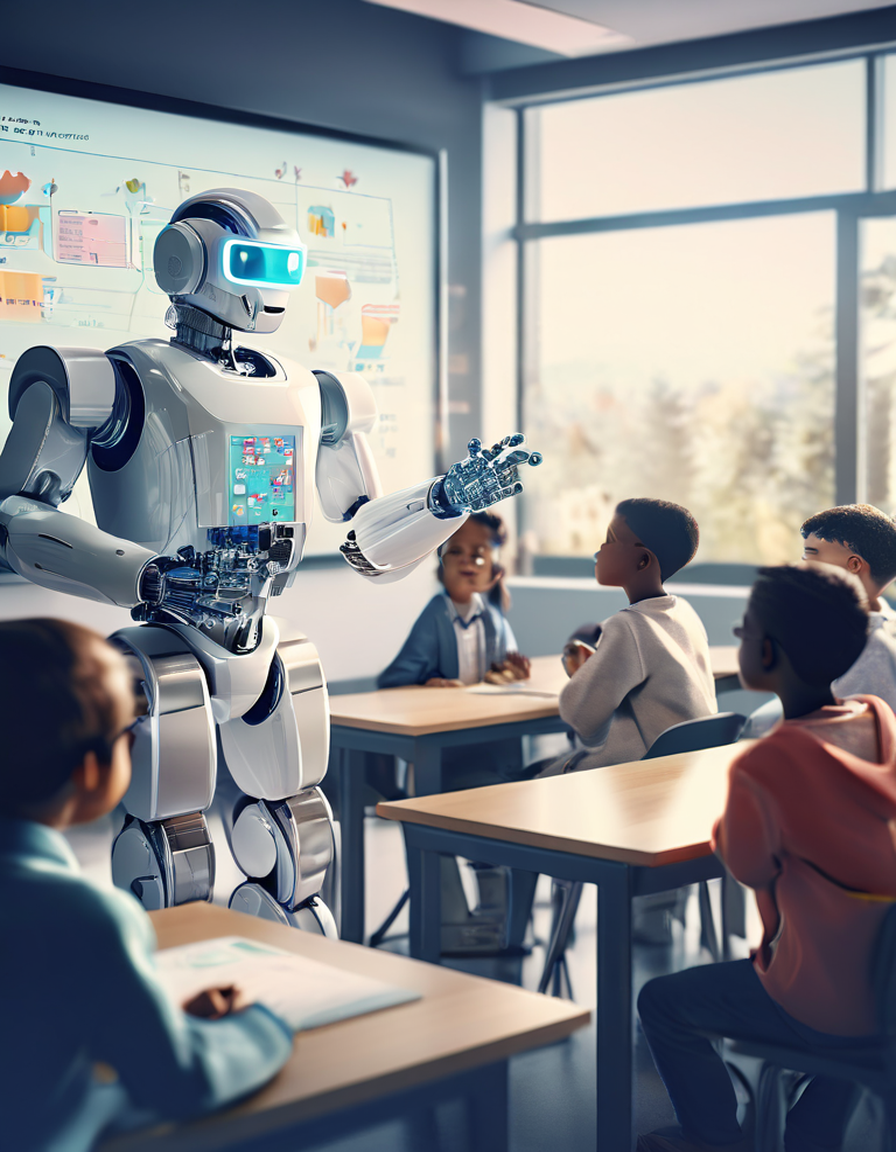In recent years, advancements in artificial intelligence (AI) have revolutionized various sectors, from healthcare to finance. But what about education? The concept of AI tutors is gaining traction, and it’s worth exploring whether they’ll play a significant role in the future.

The Emerging Role of AI Tutors
AI tutors are designed to provide personalized, adaptive learning experiences. Unlike traditional tutoring methods, which often rely on a one-size-fits-all approach, these tutors can tailor their teaching strategies to meet the unique needs of each learner. This capability makes them particularly appealing to a diverse audience, including:
- Students: From elementary school to university, students can benefit from AI tutors that adapt to their learning pace and style, offering targeted help where it’s needed most.
- Lifelong Learners: Individuals who are continually seeking new knowledge and skills can find them helpful in navigating complex subjects, at their own pace.
- Working Professionals: For those looking to upskill or reskill, they can provide flexible, on-demand learning opportunities that fit around busy schedules.
Benefits of AI Tutors
Personalized Learning
One of the most significant advantages of AI tutors is their ability to offer personalized learning experiences. By analyzing a learner’s progress and adapting the material accordingly, they can provide a more effective and engaging learning experience.

By taking advantage of machine learning algorithms, AI tutors can continuously assess a learner’s strengths and weaknesses. This allows for a dynamic adjustment of the curriculum, ensuring that students are always receiving content that is appropriately challenging. For example, if a student demonstrates proficiency in algebraic concepts but struggles with geometry, the tutor can allocate more time to geometry until the student grasps the material.
Western Kentucky university thesis claims that personalized learning can lead to a 20% increase in student engagement and a 15% improvement in academic performance. Furthermore, studies conducted by the Bill & Melinda Gates Foundation have shown that personalized learning methods can lead to gains equivalent to an additional seven months of learning over the course of an academic year.
Accessibility
AI tutors can break down barriers to education, making high-quality tutoring accessible to anyone with an internet connection. This is particularly beneficial for individuals in remote or underserved areas who may not have access to traditional tutoring services.

Moreover, AI tutors offer 24/7 accessibility, allowing learners to engage with educational content at any time, without being constrained by traditional classroom hours or tutor availability. This around-the-clock access is particularly beneficial for non-traditional students, such as those balancing work and family commitments, or individuals who prefer learning during off-peak hours.
Recent data highlights the impact of AI-driven educational platforms on accessibility. According to a study by the World Economic Forum, online educational platforms experienced a 30% increase in enrollments from regions lacking robust educational infrastructure during the COVID-19 pandemic. Additionally, research conducted by the International Society for Technology in Education (ISTE) found that students in rural areas utilizing AI tutors achieved a 25% improvement in their standardized test scores compared to those relying solely on traditional educational methods.
Consistency and Availability
Unlike human tutors, AI tutors are available 24/7 and can provide consistent support without the limitations of time constraints or varying teaching styles. This constant availability ensures that learners can get help whenever they need it. Moreover, AI tutors maintain a uniform quality of instruction, ensuring that each learner receives the same level of attention and expertise, which can sometimes vary with human tutors due to subjective differences.

Furthermore, according to a survey conducted by the EdTech Research Group, 78% of students using AI tutoring platforms reported that the round-the-clock availability helped them manage study schedules more effectively. Additionally, a study from the Journal of Educational Technology & Society (2021) found that students who used AI tutors consistently scored an average of 12% higher on assessments compared to their peers who relied solely on traditional tutoring methods. This consistency not only helps in reinforcing learning concepts but also significantly boosts confidence among learners.
Cost-Effectiveness
AI tutors can be a more affordable option compared to traditional tutoring. By automating certain aspects of the learning process, educational institutions and learners can save on costs while still receiving high-quality education. The scalability of AI-powered solutions means that these tools can be deployed to a large number of students at a fraction of the cost associated with hiring an equivalent number of human tutors.

A study conducted by the EdTech Research Network revealed that schools integrating AI tutors reported a 40% reduction in supplementary tutoring costs. Additionally, a survey by the National Center for Education Statistics found that the average cost of employing a human tutor for a student was approximately $50 per hour, whereas the cost of an AI-based tutoring system subscription averaged around $10 per month. This significant cost difference highlights the economic advantage of AI tutors, making quality education more accessible to a broader range of students.
Subsequently, the cost-effectiveness of AI tutors extends beyond just financial savings. By automating administrative tasks such as grading and progress tracking, AI tutors free up valuable time for educators to focus on more personalized and instructional interactions. This efficiency not only saves money but also enhances the overall educational experience for both students and teachers. As such, the implementation of AI tutors presents a compelling case for educational institutions looking to optimize resources without compromising on the quality of education.
Challenges and Considerations of AI tutors

While the potential benefits of AI tutors are substantial, there are challenges and considerations to keep in mind:
- Data Privacy: Ensuring the privacy and security of student data is vital. AI systems must comply with strict regulations to protect sensitive information.
- Human Touch: While AI tutors can offer personalized learning, they lack the emotional intelligence and empathy that human tutors provide. Balancing AI with human interaction could be key to a well-rounded learning experience.
- Quality of Content: The effectiveness of AI tutors depends on the quality of the content they deliver. Continuous updates and improvements are necessary to ensure that the educational material remains relevant and accurate.
Conclusion
The future of AI tutors looks promising, with the potential to transform education for students, lifelong learners, and working professionals alike. By offering personalized, accessible, and cost-effective learning solutions, they could become an integral part of the educational landscape.
However, it’s crucial to address the challenges and ensure that AI tutors complement rather than replace human educators. The ideal scenario is one where AI tutors and human tutors work hand in hand to provide the best possible learning experience.


